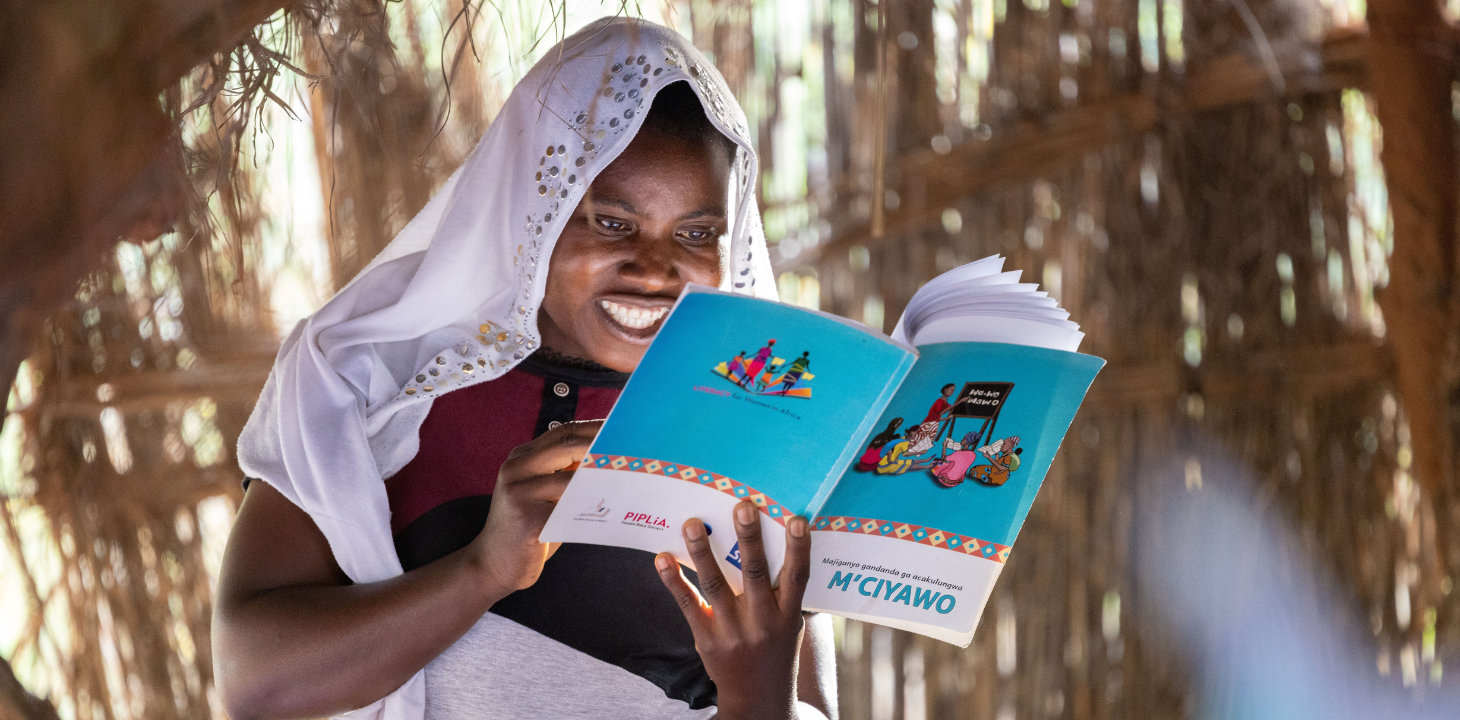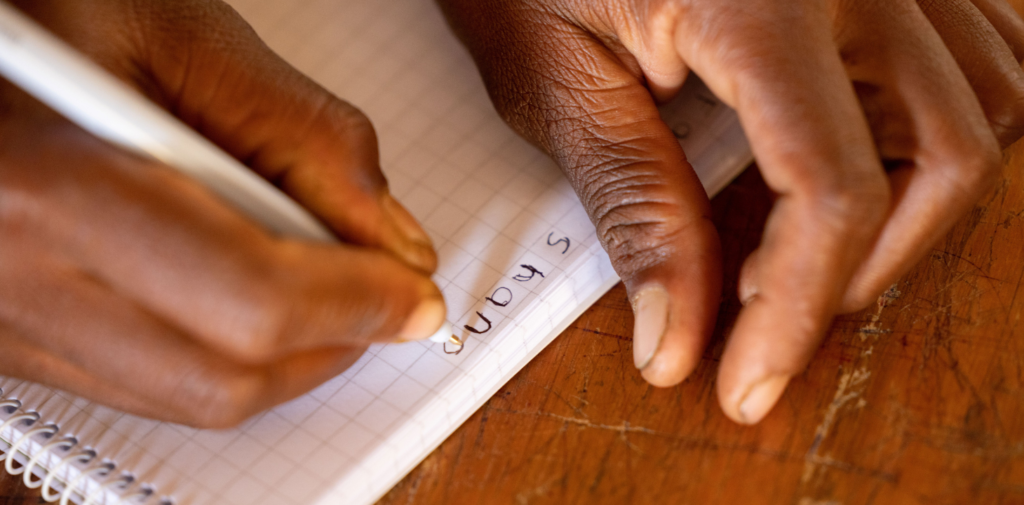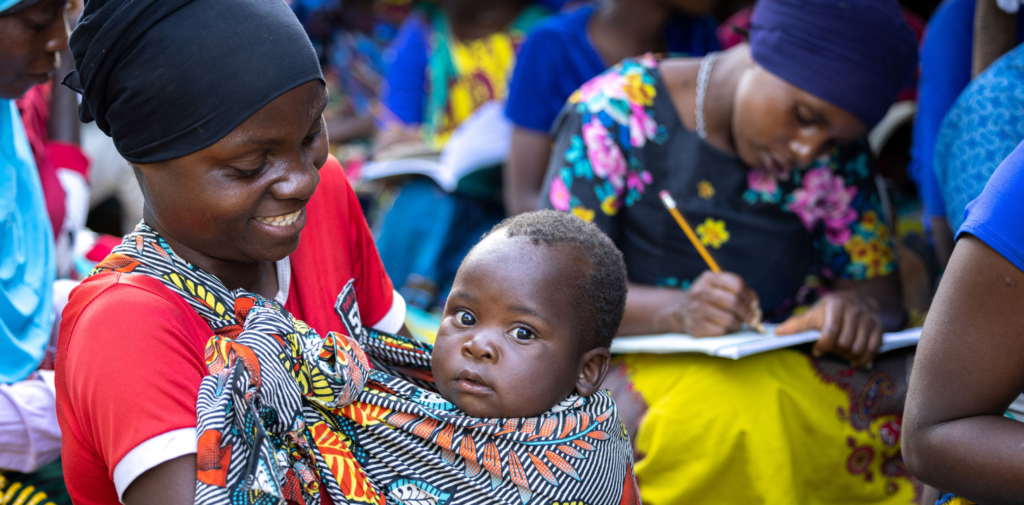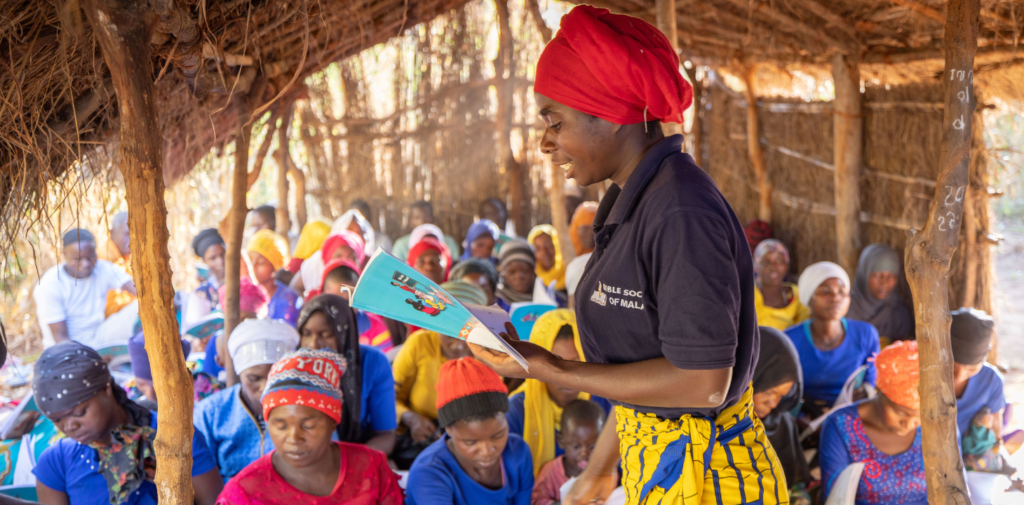Literacy empowers women in Africa

Anyone who has ever learned to play an instrument or speak a new language as an adult knows that a new skill does not come easy. A new skill must be practiced continuously and it takes a lot of effort, otherwise the skill once learned will be forgotten. This also applies to learning to read and write. It is a skill that requires a lot hard work and practise.
Even though literacy is a human right, there are around 800 million illiterate adults in the world. Illiteracy is a global problem with consequences for economic and democratic inequity, which are felt even more acutely by women and minority cultures. Among the world’s illiterate people, women and members of minority nations stand out. Literacy for Women in Africa -project responds to this human rights problem by offering literacy classes in minority languages. It has been observed worldwide that learning results are often poor if the learner learns to read in other language than his mother tongue, for example the official language of the country.
An independent research group, the Center for Educational Neuroscience, Great Britain 2022, evaluated the Bible Society literacy program in Malawi and was impressed with the learning results. After the literacy class, the students had acquired a new skill that had really become a part of their life. When you acquire a new skill, it is something that can never be taken away from you.
Literacy becomes a part of yourself – and future generations
In Malawi, in the Mangochi region, the yao people have the lowest literacy rate in the country. 45% of women are illiterate. In a world where education is a pathway to getting a job and to a better quality of life, in Malawi only 3% of women graduate from secondary education. The school dropout rate for teenage girls is particularly high.
Students’ skills were tested in Malawi six months after the literacy class. The results showed that the majority of learners could read as well or even better after six months than when the literacy course ended. This is not self-evident, as literacy studies have shown that learning to read fluently is not easy, and learned skills can be easily forgotten.
Half a year after the course, half of the students felt able to use technology, such as sending text messages on a mobile phone; 53% felt that their reading skills helped them at work and 45% reported that they could use reading in decision-making. The impact of literacy came out most clearly in relation to the next generation. 75% said they felt able to help their children read. The majority (95%) indicated that they wanted to continue studying literacy.
A thumbprint as a signature is perceived as a shame
Literacy gave students more self-confidence and empowerment in other areas of life as well. In the interviews, the most common answer about the benefit of literacy was they no longer have to use thumb print as a signature. A thumbprint signature is considered shameful. A signature is also needed in very practical financial situations, for example the state has promised support for agricultural fertilizers, but in order to receive the support of 70,000 kwacha (about 70 euros) you must be able to sign your name.
The literacy project supports the change of the social environment by offering women opportunities for continuous learning. By cooperating with local communities and village leaders, the project is gradually changing expectations about the role of women in society.
Singing improves learning outcomes
There are several reasons for good learning results in literacy classes. First of all, the starting point is students mother tongue. Kimmo Kosonen, director of literacy work in the United Bible Societies, states that rural women in many African countries would not learn to read in the national dominant languages, because they hardly speak them. “If they don’t understand the language used, it is very hard to learn even the basic skill of decoding, i.e. the connection between sound and sign. The risk of interrupting the course is also high,” Kosonen concludes. Because of this Bible Societies` literacy classes use minority languages. “After just a few days, the learners already know some letters and simple words, after a few months already simple sentences”, Kosonen tells excited.
Another important factor in achieving literacy is teachers. The fact that the teachers are trained members of the local village communities is a huge asset. In 90% of the villages that had a literacy class, voluntary follow-up meetings for reading practice were also organized after the course. The teachers were involved in these on a voluntary basis. In the interviews, teachers were asked what they like most about teaching. One teacher commented: “We are happy when the interaction between students and teachers is equal. That makes it work.”
Taking local needs into account is also important. Literacy classes must be organized in close cooperation with village heads. For example, the seasonal requirements of agricultural work, cultural aspects and general everyday needs must be taken into account.
A surprising reason for accelerating learning was singing. Even though this was not planned, singing was an integral part of all literacy classes. It served as a tool for maintaining motivation, as well as a message both internally to the class and externally to the village about the pride of learning to read. One student described how singing helped: “It motivates and encourages us, but it also speaks to others outside the class and shows that we are happy. People come out to see what’s going on, so that encourages them as well.”
Text: Hanna Paavilainen, Finnish Bible Society
Photos: Ari Vitikainen, Finnish Bible Society
Source: Literacy for Women in AfricaYao project evaluation, 2021–2022, Knowland, V., Rogers, C., & Thomas, M. S. C. Center for Educational Neuroscience (CEN)


